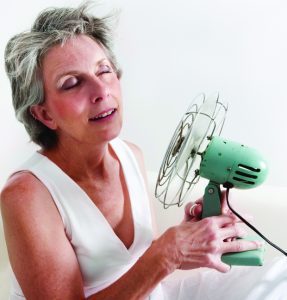 August is “Safety Month” and while we take the time to consider all of the preventative ways to protect ourselves, we often overlook the negative effects that these hot summer months have on our cardiovascular systems.
August is “Safety Month” and while we take the time to consider all of the preventative ways to protect ourselves, we often overlook the negative effects that these hot summer months have on our cardiovascular systems.
With weather approaching the upper 90’s and on some days, triple digits, the heat can be unbearable at times and downright dangerous, this is particularly the case when we factor in the high level of humidity.
Our bodies self-regulate heat by sweating and also through radiating heat back into the atmosphere. When we sweat, we also perspire potassium and sodium. Both of these minerals help to control nerve function, water balance, and heart rhythm.
If you suffer from any heart conditions, the loss of these minerals can be detrimental to your cardiac condition.
Sweating can quickly escalate into dehydration; therefore it’s critical to stay hydrated with cool water, not sugary drinks. If we become dehydrated, we increase our risk of raising the blood pressure and having heart palpitations.
When our bodies are hot, the skin radiates heat into the air to normalize our body temperature. When the air is sweltering, our bodies can no longer reduce its high temperature this way, as it has nowhere to radiate the heat into or to take in cooler air from, as the temperature is greater than your bodies.
Warm weather makes the heart pump faster, which requires more oxygen. When it’s hot, and we can’t cool down, or breathe efficiently, we complicate the heart’s normal functioning, by putting undue stress on its muscle contractions.
The warning signs of heat stroke or other heat-related disorders are:
• Muscle cramping
• Heart palpitations
• Dizziness
• Fainting
• Headache
• Nausea
• Fatigue
If you experience any of these symptoms, it’s imperative to get to a cool place, drink cool water and call 911 if symptoms persist.
Ways to stay cool and avoid the heat-related heart issues
• Drink extra water
• Talk to your physician about reducing your diuretic pills
• DO NOT exercise in the heat
• Avoid the hottest times of the day (10:00 am to 4:00 pm)
• Eat plenty of cooling foods like vegetables and fruit
• Stay in an air-conditioned room
• Avoid caffeinated and sugary drinks
Not everyone has air conditioning, so it’s critical to find a public place with cool air, like a library or shopping mall to stay safe in during the hottest days. Drinking electrolyte-enhanced water will also help to replace any lost minerals. Additionally, if you have congestive heart failure, you should talk to your cardiologist about specific ways to stay cool that will not interfere with your fluid and sodium intake issues.
Dr. Joseph Freedman is devoted to keeping your heart at its healthiest. Dr. Freedman is a Board Certified Cardiologist, and his mission is to provide the surrounding communities with the highest quality cardiac care in a welcoming environment. He and his staff are dedicated to fulfilling the specific cardiac needs of each patient.
To find out more information about Dr. Freedman, your local specialists in the diseases of the heart, veins, and arteries, please call (239) 574-8463 or visit them online at, www.flccg.com
Dr. Freedman brings many years of experience as a cutting edge cardiologist specializing in the prevention, diagnosis, and treatment of all cardiac disease. He trained at the prestigious Cleveland Clinic, continually ranked #1 in Cardiovascular Care, where he focused on cardiac imaging. He achieved five board certifications in Internal Medicine, Cardiology, Comprehensive Adult ECHO, Nuclear Cardiology and Cardiac CT. During his tenure as the lead noninvasive cardiologist at Florida Medical Center in Ft. Lauderdale, he helped lead the hospital to achieve Level 5 chest pain certification, the highest designation of cardiac excellence.
He has spoken on national health care radio programs and has appeared on local news, highlighting the latest in cardiovascular care. Dr. Freedman prides himself on being an advocate for the patient. Every patient is unique, and he works carefully with leading local and national experts to make sure patients receive the best specialty procedural care possible for that particular case. Dr. Freedman has done research in cardiac MRI studies of the heart, in nuclear scanning, and has participated in the research trials of several leading cholesterol-lowering drugs. Dr. Freedman also has extensive experience in pulmonary hypertension and ran a large clinic in Broward County for these specific and often undiagnosed patients. Dr. Freedman speaks Spanish as well.
Cardiac Care Group
3208 Chiquita Blvd S., Suite 110
Cape Coral, FL 33914
(239) 574-8463
www.flccg.com
This information is for educational purposes only and is not intended to replace the advice of your doctor or health care provider. We encourage you to discuss with your doctor any questions or concerns you may have.










